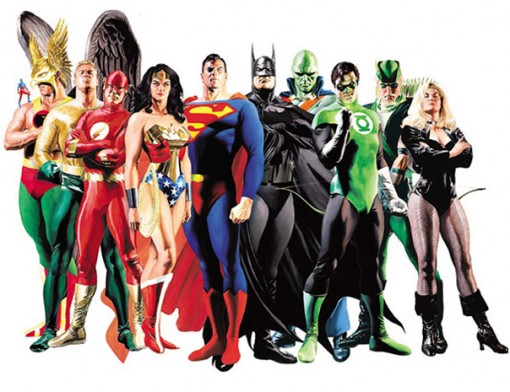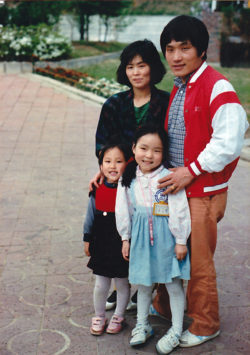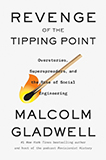A few days ago, the NYTimes ran a op-ed piece titled “Super People” that left me pondering its implications and reactions. If you have a few spare minutes, I highly encourage you to read the article. If you do not, this paragraph sums up what “Super People” are:
A brochure arrives in the mail announcing this year’s winners of a prestigious fellowship to study abroad. The recipients are allotted a full page each, with a photo and a thick paragraph chronicling their achievements. It’s a select group to begin with, but even so, there doesn’t seem to be anyone on this list who hasn’t mastered at least one musical instrument; helped build a school or hospital in some foreign land; excelled at a sport; attained fluency in two or more languages; had both a major and a minor, sometimes two, usually in unrelated fields (philosophy and molecular science, mathematics and medieval literature); and yet found time — how do they have any? — to enjoy such arduous hobbies as mountain biking and white-water kayaking.
The essay goes on to theorize the rise of the new Super People (evolution, better nutrition, etc.) and wonders if this trend is a sign of the growing income inequality in America such that wealthy parents can invest in their children to an unprecedented degree. The author also asks if the phenomenon is partly an illusion, spurred by resume-padding and trophy-collecting rather than genuine passion and commitment.
I have varying thoughts on the rise of the new Super People. The first, and foremost, being that I actually know a few Super People and they all seem to be well-rounded, well-adjusted individuals who are content with their lives and continually enrich the lives of those around them.
The second is worry. My sister used to work for a prestigious tutoring academy and tells me that parents are spending hundreds of dollars per hour — and sometimes even thousands of dollars per session — just to bump their kids’ grade from an A- to an A, or to help a 740 grade on an SAT score reach the perfect 800 mark. She also says that some of her students’ schedules were so jam-packed with activities that the only time they could meet with her for their private tutoring sessions was at 9 or 10pm on weekends.
Isn’t an A- good enough? (This question seems timely considering the latest episode of Glee, where an A- is called an “Asian F.” :-D) Shouldn’t weekends be reserved for — oh I don’t know — taking a break? Should not the main goal of childhood and the tumultuous adolescent years be to learn about life and prepare for adulthood, not to pad your resume or college application?
My third concern also comes from a parenting perspective, but it is in a completely opposite direction from the previous. When you look through the comments on the original NYTimes article, a clear trend emerges: criticism of the Super People. Citing the commenters themselves as better and happier people for not being “super.” Calling Super People’s achievements to be nothing more than trophies, and assuming that they are all uncreative, uncaring, and unhappy.
When did mediocrity become something to be celebrated?
Can’t these commenters be impressed by Super People and look up to them? Is it so hard to admit that Super People are better than us?
Like all parents, I want the best for my children. I want them to excel in all aspects of life. I want them to get straight A’s, to be good athletes, to be musical and artistic, to be compassionate, and not only that, rise above and beyond others when doing so.
But at the same time, I know that their being ALL of these things is unlikely. Maybe one or two, but all? I would be happy, for sure, but I would not hold it against them if they were to simply suck at certain things.
And I would not love them any more or any less for their achievements, or lack thereof.
BUT I refuse to celebrate mediocrity. I believe that one of the biggest problems facing our nation today is the snowflake syndrome, the belief that everyone should made to feel extraordinary for ordinary achievements.
It will be tough balancing act. I hope that I can do it.
What are your thoughts on the new Super People?







 I like books, gadgets, spicy food, and art. I dislike shopping, hot weather, and the laws of entropy. Although I am a self-proclaimed computer nerd, I still have a love for handbags and makeup... and I am always teetering on high heels. To learn more about me, visit the
I like books, gadgets, spicy food, and art. I dislike shopping, hot weather, and the laws of entropy. Although I am a self-proclaimed computer nerd, I still have a love for handbags and makeup... and I am always teetering on high heels. To learn more about me, visit the 


This is a very interesting topic. I guess I would say I am an aspiring Super Person who looks up to Super People. I totally agree we should not celebrate mediocrity and I don’t really get why anyone would aspire to mediocrity. That said, what I want for my girls is to discover and pursue their passions from an early age. If that means they forgo other activities, I am totally fine with that.
I don’t believe in celebrating mediocrity either. However, I do recognize that sometimes, the less than perfect achievement is still the best the person can do, and I do believe that the effort can be applauded. It’s kind of a fine line, in my eyes. I don’t want to be the kind of future parent who just wants their child to feel special, so much so that I spoil them and think that everything they do is the best thing ever. Tantrums, for instance, not so much the best thing ever. It’s hard to say what I will end up doing, though, since I don’t have children yet. Coming from the background where anything less than perfection was not accepted, and having it lead to me working more to hide less than perfect grades rather than working harder to raise them, I don’t want that kind of fear for my kids. So, we will see. The article is quite thought provoking.
Oh man is this a tough subject for me, and one I can’t really give a personal “comment” on that easily. I don’t believe in celebrating mediocrity, I believe in celebrating when people find what makes them happy in life and go after it, be it staying at home with kids or becoming “Super Human.” On this note though, I read another article today that in my opinion correlates well with this subject. The idea of becoming a “gracious loser” and whether it is good or bad: http://www.nfl.com/news/story/09000d5d822df02d/article/for-newton-losing-is-the-only-thing-that-doesnt-come-easy?module=HP11_content_stream
Another tough one for me.
haha yes, the snowflake syndrome. reminded me of this:
http://nymag.com/news/features/27840/
I know a lot of SuperPeople that are not well-rounded, well-adjusted people.
I have degrees from more than one Ivy League university, so I’ve spend a lot of time around these Super People- of every age. My take on most of the people I encountered there: The dumbest group of smart people I’ve ever met.
Can they excel at sports, music, academics- yes. Do they have enough common sense to keep right in the hallway, boil a pot of spaghetti, or make a doctor’s appointment for themselves- no, for a shocking percentage.
One of the dumbest (as in least in terms of common sense) I ever encountered is now Chief Obstetrics Resident at an Ivy League medical center and I’m flabbergasted wondering who thought it was safe to let her treat patients.
I don’t think the nutty-professor/sheltered Ivy-Tower/neurotic over-achiever with no social skills stereotype is that far off the mark.
At my defense, when my doctoral advisor did my introduction, she actually commented that what made me stand out amongst other students was my common sense! I was little insulted that she didn’t have a more glowing comment to make, but then I realized how rare it is amongst my Super People classmates.
I do think it’s a shame how many students are groomed for Ivy League colleges instead of just being groomed to be a good, smart, hard-working person. I was lucky enough to stumble through high school unaware of the college admissions lotto I would win that got me into an Ivy League school. I didn’t have terrible external pressure to perform- only my own motivations. I worked hard of my own volition because it felt good to learn, to do well in school, to volunteer in my community, to sing in the choir, etc. without thinking ahead.
I guess I don’t really see it as a mediocrity/achievement thing. I think it’s the motivation behind it. I think it’s fine if Super People exist. I think it’s a shame to cultivate them like a crop. Being managed like a commodity is a shitty way to grow up. Every kid is exceptional in some way. Driving/Pressuring/forcing a kid to excel in every way to win a slot at a top college/scholarship/etc doesn’t seem like a noble pursuit.
I guess I have been lucky in that I have come across Super People who are exactly as you describe, as well as those who are genuinely passionate about their pursuits, well-rounded, and can hold a conversation. 🙂
I totally agree with you Courtney about the lack of common sense in smart people! I can’t tell you how many times I’ve had to explain how to print, or what “DO NOT OPEN THIS DOOR” signs mean etc. Glad to know I’m not the only one who thought with this opinion 🙂
I think the main problem with both Super People AND mediocrity is that they fail to create experts at anything. Sure, Super People can do lots of things well. But can they do one thing great? And those who are encouraged to do things that they are not good at are missing their opportunity to find the one thing they excel at.
It’s my thought that there are too many cooks in the kitchen and no chefs.
To me, the mere definition of Super People is that they are great, and are considered experts, at more than one things. I feel like what you’re describing are those who strive to be Super People but are not, or those who were pushed into it…does that make sense?
Definitely makes sense. I should’ve left Super People out of it altogether. Let’s talk mediocrity.
I think that every person has the potential to be great at something. The eagerness* to accept and even encourage mediocrity, though, is what I think is keeping most people from finding their calling. And it’s also what is keeping “American Idol” flush with crap singers — “My family says I’m the best singer in the world.” No one is winning from these lies.
*I’ve noticed this eagerness rising in the past 10 years or so. No way did anyone coddle me or give me a trophy for coming in last place when I was in school.
There are definitely Super People, but they’re not a new phenomenon (Shakespeare, Pascal, Benjamin Franklin for instance). I think the article conflates the real Super People with those who want to appear Super, but are not.
I think so many have a hard time with the concept of Super People because it’s deflating to your self-esteem to realize some people are really just smarter, harder-working, stronger and more attractive than you are. (And yes, these things frequently go together: attractive people are usually more intelligent and nicer than average too, unfair as that is.) But part of maturity is recognizing your limitations, including the fact that there is always someone better than you.
I think being a Super Person is genetic (although good nutrition and sensitive, supportive parenting are important too). So while it’s important to help your children pursue their dreams, intensive tutoring in the hopes of making children Super is probably a waste of time. It will just make your non-Super children neurotic, as they realize that they never are going to be able to compete at the same level as the truly gifted.
I hope that I can be mature enough to accept my daughter’s strengths and deficits, whatever they are, and work to help her make the best of what she has been given.
This reminds me of a book called “Battle Hymn of the Tiger Mother” written by an Asian Harvard professor, Amy Chua about Asian parenting. She expresses why Asian parents do what they do.
Recommended, if you really do want to learn more about “super parenting” and the reasoning behind it. Very interesting read!
I think the idea of Super People is wonderful – and for those who are Super, I would just hope they have happiness and contentment. I mean, someone’s got to lead the rest of us! : )
Also, I can’t believe people would pay so much for tutoring. Maybe it’s because I’m a Midwesterner and we don’t have quite the same getting-into-Ivy-League-is-a-must mindset. (Don’t get me wrong – college is important, but there are plenty of ways to make a good living and live a quality life without a Big Name School degree.)But childhood only comes once – let them play!
I’m not debating whether super people are nice, well-rounded individuals or if they’re bipolar people who have no common sense – to each their own. But, I do think it’s a shame that the majority of super people come from families who can both financially and emotionally support their many endeavors. Coming from a family of ten with an income of less than $35k with both parents working, such a thing was an impossibility for me or my siblings. There was no extra money for piano lessons or clarinet lessons or sports or private tutoring. What I think you’re failing to talk about when you think of these super people is the fact that their SEC allows them to be whom they are today. I’m impressed with their accomplishments, but I would be far more impressed if they became a super person from a background that resembles those of the lower SEC classes.
Letters to the Editor about the “Super People” piece:
http://www.nytimes.com/2011/10/10/opinion/standing-out-in-a-hyperachieving-crowd.html?ref=opinion